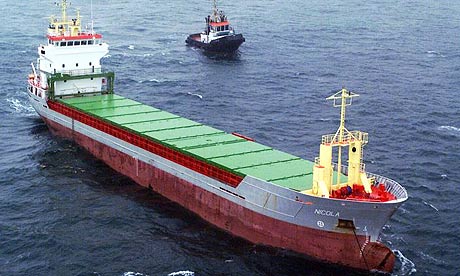The
2M Grouphas an excellent summary on the economics of Heathrow. No need to add much:
Current airport
• Fewer than 26% of users of Heathrow are travelling on Business(1).
•
35% of people travelling to Heathrow are interchange passengers – they
never leave the airport. Therefore they contribute little to the UK
economy outside of the aviation industry.
• 100,000 flights
a year, nearly a fifth of all flights, are to destinations in the UK or
near-Europe where there is already a viable rail alternative. There are
60 flights per day to Paris – more than any other destination. 36
flights a day go to Manchester, more than to Hong Kong or Chicago.
•
London’s airports handle 128 million passengers a year – that is more
than use the airports serving Paris and Frankfurt combined.
•
Ferrovial, the Spanish owners of Heathrow, make a substantial profit
from passengers using the airport. In the year since Ferrovial bought BAA (the operators of Heathrow) – capital investment fell by 15% but revenue grew from £1.077 billion to £1.232 billion.
Heathrow Expansion
• Only 1% of members of the Institute of Directors think airport expansion is a priority(2).
• 78% of London firms are against expansion at Heathrow(3).
• Fewer than a sixth of London firms would even consider leaving London if the airport did not expand(4).
Aviation generally
• £9 billion a year in tax subsidies is given to the aviation industry (It is zero-rated for VAT. It does not pay on fuel).
• Aviation fuel costs 26p a litre whereas petrol for cars is about £1 a litre.
•
£9 billion would pay for 22 new hospitals(5) – it cost £400 million to
build London’s University College Hospital – or 450,000 nurses (current
nursing positions advertised at £20,000(6).
• 89% of the general public think that businesses that create pollution should be more heavily taxed(7).
• 63% of the general public would be prepared to sacrifice one foreign holiday a year to save the planet(8).
• Only 17% of the general public are opposed to constraining growth in air-travel(9).
•
Tourists visiting the UK spend at least £15 billion pounds less per
year than UK tourists going on holiday overseas. Expanding aviation
simply means increasing the trade deficit for UK tourism.
LHR, BAA, HeathrowExpansion, richmondtransits.blog, ai, airlines, transportation

 The Beeb wakes up after under-reporting past cases with this article:
The Beeb wakes up after under-reporting past cases with this article:


 've been lobbying long to get a
've been lobbying long to get a  Very exciting news today:
Very exciting news today: 
 Wednesday: train delayed because of incident at the White Hart Lane level crossing. Just like the one reported here:
Wednesday: train delayed because of incident at the White Hart Lane level crossing. Just like the one reported here: 



 I was tweeted this link yesterday:
I was tweeted this link yesterday: 


 It seems the bright sparks in our council are doing all they can to extract more money from motorists and kill local business:
It seems the bright sparks in our council are doing all they can to extract more money from motorists and kill local business: 





